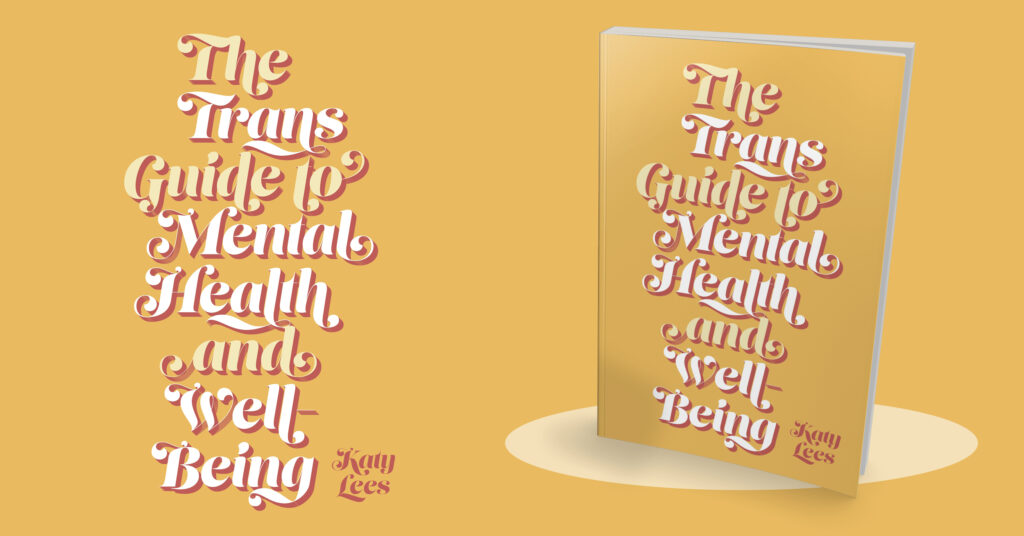How to Find a Therapist Who Works for You
Katy Lees is a queer, non-binary author and psychotherapist from the North East of England. They got their start writing fiction and non-fiction for online journals while studying for their MSc in Person-Centred and Experiential Psychotherapy. Their new book, The Trans Guide to Mental Health and Well-being, is publishing in April 2022. Here, they share their advice on how to find a therapist who works for you.

Investigate Your Local Area
Depending on where you live, there should be several options for counselling around you in your local community. A good starting place might be your GP or primary care physician, who will be able to refer you for therapy with an NHS mental health professional. They may also be able to point you in the direction of relevant charities and support groups that specialise in what you’d like to talk about. Other community groups in your area may be able to offer mental health support. As well as using search engines to look up what’s available where you live, think about popping into libraries, community cafes, charities, and GP surgeries to see what’s available.
Consider Teletherapy
As well as looking for mental health care in your local area, you can look further afield for therapists working in teletherapy. Therapists who work over the phone, or via video platforms such as Zoom or Skype, will be able to see you from the comfort of your own home. Teletherapy has become increasingly popular over the last few years as we have dealt with COVID-19 and it looks like it’s here to stay. It can be just as effective as in-person therapy, although you will need to make sure you have reliable Internet and a quiet, private place to set up your space for your therapy session. As a therapist I’m particularly enjoying seeing clients online, especially if a client’s pets make an impromptu visit!
Consider Your Budget
If you’re in the U.K. and you decide to see your GP to be referred to a therapist, you will be able to access a short course of therapy for free. These free services are indispensable and accessible for everyone. Therapies offered by charities and support groups are also often free or low-cost.
These referrals can often be lengthy so, if you want to be seen more quickly, you might want to seek a therapist in private practice. Depending on where you live and the kind of therapy you’re interested in, one hour-long therapy session in England can cost between about £20 to £100, usually coming to around £50 per hour. If you find a therapist you’d love to work with but you’re struggling with your budget, don’t be afraid to contact them and explain your circumstances – many therapists offer reduced price sessions to those who need them. It’s also worth considering having therapy once every two weeks, which can allow you to stretch your budget without breaking the flow of sessions.
Contact a Specialist
If you feel that there’s an issue you would particularly like to explore, it might be worth specifically searching for a therapist who’s a specialist. Directories like Psychology Today (link: https://www.psychologytoday.com/gb/counselling) allow you to search for therapists based on their specialities, meaning you know your therapist will be knowledgable and trained well regarding your issue.
If you face oppression or are searching for a therapist who will understand an important aspect of your identity, you’re not alone – now, perhaps more than ever, we need accessible therapy that works with our identities, not against them. There are specialists who work in these areas, too, including me – in my work as a therapist, I put LGBTQ+ people at the centre of my work, especially trans and non-binary people. Directories such as Pink Therapy (link: https://www.pinktherapy.com/) are particularly helpful for LGBTQ+ people seeking understanding therapists.
You can buy a copy of The Trans Guide to Mental Health and Well-Being here.
